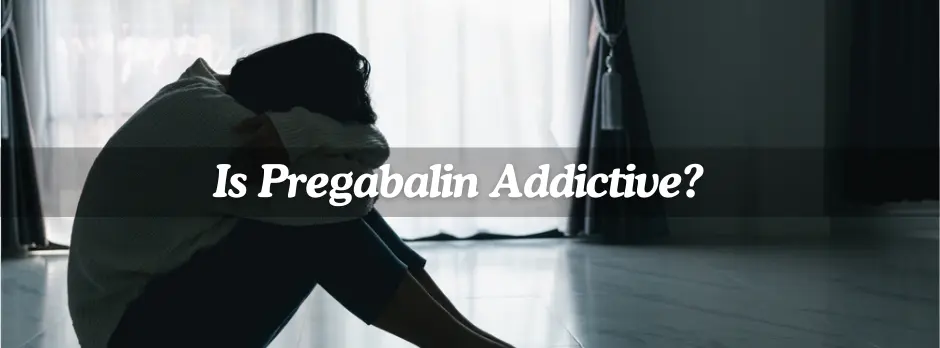
Pregabalin, sold under the brand names Lyrica, nervigesic, and others, is a prescription medication used for treating chronic pain, epilepsy, anxiety, fibromyalgia, and other health conditions.
Nonetheless, there are cases where this medication has led to addiction.
The growing awareness of Pregabalin’s misuse by individuals has led to its classification as a controlled substance in various countries, including the United Kingdom and the United States.
Here, we will take a look into the topic of pregabalin addiction so that our readers are informed about the addiction potential of this medication.
Is Pregabalin addictive?
As a Schedule V controlled substance, Nervigesic is not considered to be highly addictive. Although it is at the lowest schedule on the list, it is on the list, which means it has some risk that users may abuse Lyrica and even become addicted to it [1].
In a study by Yusuf S. Althobaiti et al. published in the year 2019, it was stated that Pregabalin at high doses like 60mg and 90mg may induce addiction.
What Is Pregabalin Addiction?

Addiction to Pregabalin is a condition characterized by compulsive use of the medication Pregabalin despite adverse consequences [2].
Signs of pregabalin dependency
Some of the indications of developing an addiction to Pregabalin are –
- Taking doses of the medication higher than the recommended amount.
- Despite experiencing adverse effects, individuals may have difficulty in discontinuing their use of Pregabalin.
- Lyrica is still being used despite experiencing issues in work and relationships.
- When Pregabalin is not taken, common effects like difficulty sleeping, anxiety, and nausea may occur.
- Attempting to deceive about the amount of Lyrica being taken.
- Experiencing a shortage of the medication before the scheduled refill date.
- Prioritizing Pregabalin over family and work responsibilities [3].
Why Is Pregabalin Addictive?
A report by Public Health England urged clinicians to be aware of Lyrica’s potential for misuse.
Pregabalin has the ability to produce euphoria (a common characteristic of addictive substances), which plays a role in its misuse. Lyrica also has a range of other psychological effects, such as –
- Promote relaxation
- Increased desire to socialise
- Soothing anxiety
- Increased confidence.
Pregabalin, therefore, created positive feelings in users. This is positive in some scenarios, such as in the treatment of anxiety, but can be dangerous in others. This is because the relaxing and euphoric effects of pregabalin can become addictive [4].
What Are The Complications Of Pregabalin Addiction?
The complications of Pregabalin addiction are as follows –
Physical health problems – Long-term addiction to pregabalin contributes to physical health issues such as gastrointestinal problems, dizziness, coordination difficulties, and potential weight gain.
Get to know more about the link between pregabalin use and weight gain by visiting our blog page, “Can Pregabalin Cause Weight Gain.”
Psychological effects – Pregabalin addiction has a profound impact on mental health, including irritability, emotional instability, and mood swings.
Impact on relationships – Pregabalin addiction strains relationships with friends, family, and colleagues as the individual’s focus shifts toward using and obtaining the medication.
Financial problems – Pregabalin addiction has significant financial implications, as people prioritize getting the drug over meeting other essential financial obligations. This results in financial difficulties as finances are diverted towards obtaining the medicine, potentially leading to unpaid bills, debt, or the inability to afford necessities.
Available Treatments For Pregabalin Addiction

The available treatments for pregabalin addiction are listed below.
Counseling and therapy: One of the most effective therapies for pregabalin addiction is cognitive-behavioral therapy (CBT). It addresses distorted thought patterns and behaviors associated with addiction.
Medical detoxification: Gradual decrease of Pregabalin dosage under the supervision of a healthcare provider helps in minimizing withdrawal symptoms, allowing the body to adjust slowly.
Inpatient or outpatient rehabilitation programs: Inpatient programs provide a monitored and structured environment, providing 24-hour medical support during the starting stages of recovery. Outpatient programs offer flexibility for people to receive treatment while maintaining daily life commitments, attending therapy sessions, and gradually reintegrating into their routine.
Family therapy: Involving members of the family in the treatment process helps address the dynamics of the family and provides a support system for the individual in the journey to recovery. Family therapy involves open communication, understanding, and collaborative efforts toward sustained recovery.
Conclusion
Pregabalin is a very helpful medication for various conditions, but it can be addictive for some individuals. While it’s not as addictive as some other medicines, it’s important to use it only as prescribed by your provider. If you or someone you know is having trouble with this medication, it’s important to get help from a doctor. By following your healthcare provider’s advice and using the medication responsibly, you can manage its benefits and risks effectively.
FAQs
Is it okay to take Pregabalin long-term?
Is there a recreational misuse potential for Pregabalin?
Is Pregabalin good for anxiety?
Is Pregabalin potent?
Does Lyrica cause constipation?
References
- What Is Pregabalin and Can You Get Addicted to It? recoveryranch.
- Pregabalin (Lyrica) addiction: causes, symptoms, side effects, and treatment, diamondrehabthailand
- Is pregabalin addictive? nowpatient
- Pregabalin Addiction, uk-rehab










